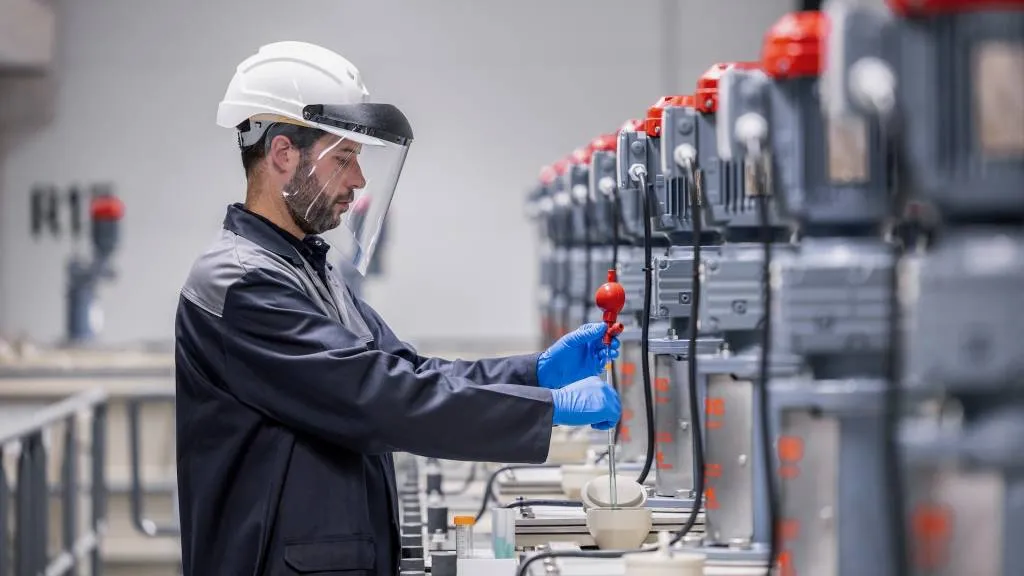As automakers continue to ramp up EV production, they’re already thinking about what to do with battery cells once vehicles reach the end of their useful lives. To that end, Mercedes-Benz opened a battery recycling center in Germany.
Located in Kuppenheim, in the southern part of the country, Mercedes claimed in a press release that the facility will be able to recover up to 96% of valuable materials such as lithium, nickel, and cobalt for reuse in new batteries through an “integrated mechanical-hydrometallurgical” process.
Mercedes-Benz battery recycling plant in Kuppenheim, Germany
Being deployed for the first time in Europe, according to Mercedes, this process starts with the mechanical separation of plastics, copper, aluminum, and iron from the battery-electrode materials, leaving what Mercedes refers to as a “black mass.” Cobalt, lithium, and nickel are separated from that mass in a chemical process.
This separation process takes place at a lower temperature—around 176 degrees Fahrenheit—than other processes, making it less energy-intensive, according to Mercedes. The automaker claims the recycling plant will be net carbon neutral thanks to the use of 100% green electricity, including a rooftop solar array.

Mercedes-Benz battery recycling plant in Kuppenheim, Germany
At full capacity, Mercedes estimates that the plant will be able to process up to 2,755 tons of material annually, which will help support production of more than 50,000 battery modules for new Mercedes EVs.
The new plant could create a bigger footprint for battery recycling in Europe to match China, which Bloomberg in 2023 estimated had the most battery recycling capacity, and the U.S., where the Biden administration has made recycling a priority alongside battery manufacturing. But the recycling market is not expected to heat up right away due to the relatively limited supply of recyclable batteries, owing in part to their long lifetime in the EVs they were originally installed in.


